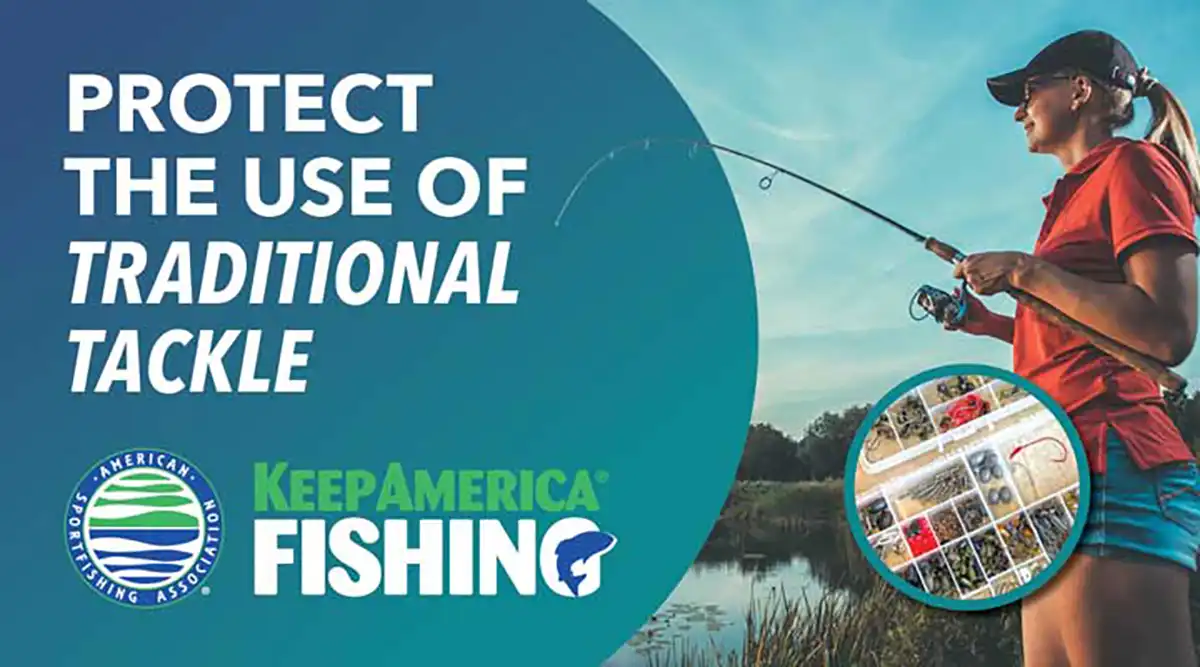Several pieces of legislation are in the works that could limit not only access to fishing for many anglers across the country but also what you can fish with in many areas. Please take a look at a couple of the issues and how you can get involved to help stop these legislative measures that will have drastic and lasting impacts on recreational fishing.
Lead Bans
Efforts are underway to prevent the use of lead tackle for fishing despite scant evidence that using lead has a harmful impact on wildlife populations.
Earlier this year, the U.S. Fish and Wildlife Service (USFWS) announced plans to prohibit the use of lead tackle in several national wildlife refuges. Banning lead tackle will deter fishing participation and, given the lack of scientific basis for the ban, sets the stage for future unwarranted restrictions. We need people to reach out to USFWS to support the use of traditional tackle by August 22.
While we are hoping to work in consultation with USFWS, recent legislation was also introduced in Congress to address this issue. The Protecting Access for Hunters and Anglers Act, was introduced in both chambers of Congress. If passed, this new bill would prohibit federal land management agencies from banning the use of traditional lead tackle and ammunition on public lands unless such action is supported by the best available science and has state wildlife and fish agency approval.
What you can do
Follow this link to the American Sportfishing Associations Advocacy Toolkit page to see how you can help by voicing your opinion to congressmen, voicing opinions to USFWS or just sharing on social media.
Vessel Speed Restrictions will Prevent Fishing Access
Since last summer when the proposal was first announced to effectively shut down the Atlantic ocean to boats over 35 feet for over half the year, ASA and partners have been hard at work fighting back against this well-intentioned but poorly developed rule.
We are gaining traction and supporters on Capitol Hill, but much more work must be done to ensure this economically devastating rule, which will not help right whales in a meaningful way, does not go into effect.
Our opponents in the extreme environmental community are undermining our efforts and we need your help to share the message that the recreational fishing community cares about whale conservation, but we need a smarter approach.
What You Can Do
This is another ASA Advocacy Toolkit to help you spread the word and contact decision makers on behalf of anglers.












